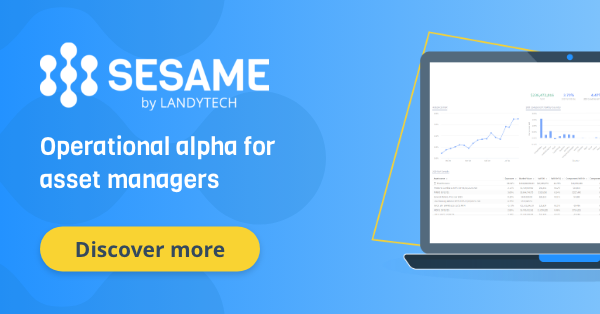Written by Landytech
23 Jan 2023Despite recent market turbulence, there has been no let-up in the deluge of new regulation on the way. It means asset managers are having to invest even more time, effort and money into meeting new requirements, posing a significant challenge for small and emerging managers, where funds, resources and staff are often in short supply.
Here we breakdown the key regulatory updates and their practical implications for EU and UK-based asset managers in the coming months.
PRIIPS for UCITS: Are you KIDing me?
UCITS managers will soon be required to produce and provide retail investors with a PRIIPs Key Information Document (KID). As part of the next advancement of PRIIPs regulation, the UCITS exemption will cease on 31st December, meaning from 1st January 2023 UCITS managers will need to publish a PRIIPS KID for retail investors. All managers of a UCITS fund will need to transition from providing UCITS key investor information documents (KIIDs) to providing PRIIPS KIDs by the beginning of 2023.
A PRIIPs KID is a short, simple pre-contractual document that provides retail investors with the information needed to make an informed investment decision. The KID will be a three-page document, written in clear and concise language, that provides potential investors with an overview of the most important features of the product they are being sold, including a general description, cost, risk profile and possible performance scenarios.
PRIIPs manufacturers or issuers must create a KID for each product in scope – products will not be able to be sold unless a KID has been provided. The KID should also be made available on a firm’s website before the product is made available to retail investors.
SFDR: The rollout continues
In Europe, firms are already grappling to meet the ESG criteria of Articles 8 and 9 from the Sustainable Finance Disclosure Regulation (SFDR).
Making sense of, and incorporating, ESG data remains a significant challenge and firms are beginning to err on the side of caution on their ESG capabilities, as it becomes clearer that there are no shortcuts to constructing and managing ESG-focused portfolios that meet both SFDR regulation and investor expectations.
In further developments, SFDR Level 2 Regulatory Technical Standards (RTS) come into effect on 1st January 2023. Asset managers will have to ensure they can provide the right data for any pre-contractual and periodic reporting. Firms must also evidence their adherence to Principle Adverse Impacts (PAIs) to quantitively back any claims made on entity and product ESG characteristics.
SDR: What’s on the horizon for the UK?
The UK is still awaiting clarification on Sustainable Disclosure Requirements (SDR) legislation – its SFDR equivalent, with a proposed implementation of 31st December 2022. The market is waiting to find out exactly how products will need to be disclosed and how far criteria will align or diverge from the SFDR regulations. Once there is greater clarity, UK firms will have to start planning in order to adapt to new product disclosure and reporting procedures.
MiFID II Sustainability preferences
From 2nd August 2022, under MiFID II, product manufacturers and distributors will have to consider investor sustainability preferences as part of their suitability assessment. Investors will need to fill in a questionnaire to express their investment choices. Firms will need to match responses with a corresponding product offering, with the onus on aligning sustainability preferences with the characteristics of funds, to come up with an appropriate product offering.
The MiFID questionnaire concerns environmental, social and governance criteria, product alignment with the European taxonomy and negative investment externalities. The aim is to provide greater portfolio customisation and a more harmonised ESG product offering based on investor preferences.
To tailor portfolio allocation to investor preferences, technology will play an essential role in managers collecting and processing ESG data, to ensure that it is properly taken into account in investment strategies.
Landytech’s Regulatory Reporting Solution
There continues to be an influx of regulatory changes creating a number of unknowns for asset managers. It is now more important than ever that firms keep up to date with these changes and prepare as early as possible for new requirements.
Boutique asset managers and hedge funds disproportionately bear the brunt of the regulatory burden, as they often lack the resources and personnel to process all the requirements demanded by regulators.
Working with a third party to automate regulatory reporting, especially one with expertise in servicing a range of asset managers and hedge funds, allows firms to get back to spending time on their strengths: managing their portfolio and attracting new capital. All without the steep recurring costs of outsourcing the entire process. A provider with scalable technology can consolidate multiple data points from a variety of counterparties to create bespoke regulatory reports across the relevant geographical regions, and provide access to the necessary analytics and market data without the associated fees.




